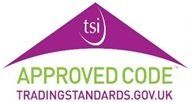How to choose a letting agent for your buy to let property?
AG Estate Agents • October 20, 2020
When deciding whether to buy a product or service it’s often about weighing up the pro’s and con’s before committing to a purchase, for example you’d want to know whether that particular product or service is going to make your life easier or give you some other benefit in return. The ultimate question being whether that particular product or service provides good value for money for you and if you really need it? right?
With that in mind, the first question to ask yourself is, do I really need a letting agent? The answer all comes down to how much knowledge you have of the property market, how much time you have, your confidence levels and what you enjoy doing. If you’re a first-time landlord with little experience in letting properties then you will see great value of an excellent letting agent especially if they are managing the property for you, as they will effectively hold your hand throughout the entire process and ensure you’re kept on the right side of the law. On the other hand, if you have a wealth of experience and plenty of time, you may see little value in hiring an agent. There is however another aspect to consider, do you want to be a ‘landlord’ or a ‘passive investor’?
With all that in mind, should you decide to hire a letting agent then ensure you take the following into consideration:
1. Decide what you want your letting agent to do:
Before meeting any letting agents, think about what you actually want your agent to do and make this clear to the agents in your conversations to ensure you’re both singing off the same hymn sheet.
Getting the right tenants and setting up a tenancy correctly is absolutely crucial to minimise any disruption further down the line and so many landlords opt for a ‘Let Only’ service from agents. Typically, agents offering this service will market the property, conduct viewings, carry out reference checks, set up a tenancy agreement and other associated paperwork and then pass everything back over to you. This type of service is great for those who don’t want the hassle of dealing with initial tenant enquiries and are unsure of the legal requirements in setting up a tenancy correctly but have the time and knowledge in managing a tenancy from beginning to end.
For those who simply do not have the time to keep up to date with the ever-changing legislations or answering tenants phone calls at midnight tend to opt for a full management service. In this service, agents will typically conduct all of the above as well as collect and chase your rent each month, arrange any necessary repairs and keep you informed of any changing legal requirements.
2. Meet at least three different agents:
It is important to meet more than one agent in order to get a better understanding as to how the different agents operate, their level of fees and most importantly, what they are like. Having a letting agent should be considered as a long-term relation and so you want to ensure you are able to build that relationship and trust with your chosen agent.
3. Ensure the agent you choose is legally compliant by checking they are:
- Registered with a property redress scheme, such as the Property Ombudsman
- Hold valid client money protection insurance
- Hold valid professional indemnity insurance
- Registered with the ICO
- Registered with an approved deposits company
4. Don’t choose the agent that gives you lowest fee with the highest property value:
In such a competitive market place, some agents have unfortunately gone down the route of telling property owners what they want to hear in terms of their property value and offering the cheapest fee, rather than competing on offering the best service possible. With such agents you will often find that either their service won’t be as good as others or that the agent will be on the on phone to you every week asking you to reduce the marketing price as they still haven’t let the property, giving you a longer void period between tenancies.
Furthermore, cheap fees may offer a short-term gain which lead to long term woes. It is far more important that the agent you appoint have the skills and experience necessary to find you the right tenants, keep them happy and keep your rental income flowing.
5. Review the agent and ask for recommendations:
Go to the agent’s website, Facebook and Google pages and read their reviews from other clients. Do those reviews reflect the type of service you’re looking for? Furthermore, check how they are presenting their other client’s properties online. Do they have professional photos and enticing descriptions of their existing properties? Would you like your property to be advertised in a similar style? Have they let any properties with a similar specification to yours recently?
Not only is it crucial to know how they are treating their existing clients, but also investigate how well they know the local market. Do they have any statistics or information about the local market on their website or social media channels? Researching this should tell you how well they know the property market.
6. Make sure you’ll be able to contact them:
Many agents will only be open from 9am – 5pm, Monday to Friday and therefore can be frustrating if you or your tenant wanted to make contact out of these hours. Check whether anyone from the agency will be available outside of the traditional working hours to speak to with and if the tenants will be provided with a contact number in the event of an emergency.
Pay special attention to how fast a letting agent returns your call when you’re making enquiries about their services. If a letting agent takes forever to get back to you when you are thinking of using them, imagine how slow they’ll be when you have a problem!
It’s also worth finding out whether other forms of communication would be possible to communicate with the agent. Can they be reached via Whatsapp or text? Or only landline or email?
7. Check how your letting agent keeps up to date with legal changes:
As landlords and agents are being fined on a regular basis for not abiding by the law it is important that your agent is kept abreast of the latest legal changes so that they in turn, can protect you. Check if your prospective agent is a member of any professional bodies such as the NLA, ARLA or RICS for example, who regularly update their members on any changes.
8. Ask the agent what other fees you are expected to pay & read their terms of business:
Ask the agent for their terms of business at the earliest opportunity and make sure you read it! Their terms of business will set out exactly who is responsible for what and what other fees are payable and when they need to be paid. Take into consideration the other admin fees in addition to their tenant find or management fee as sometimes these extra charges can be costly.
Other important aspects such as termination clauses will be found in their terms of business which will be crucial to know should the relationship between you and the agent break down in the future.
9. How do they manage repairs and maintenance?
How often do they carry out inspections? Will they provide reports to you after each inspection? Do they have reputable tradesmen in the area?
10. Call us on 0208 614 0740 for further help and advice.

Milton Keynes, located in Buckinghamshire, England, is a unique and vibrant town known for its innovative urban planning and contemporary lifestyle. Designed with a vision of creating a balanced environment for residents, Milton Keynes offers a host of advantages that make it an attractive place to live. However, like any location, it has its drawbacks as well. In this blog post, we will explore the pros and cons of living in Milton Keynes, helping you make an informed decision if you're considering this town as your future home. Pros of Living in Milton Keynes: 1. Modern Infrastructure and Planning: One of the biggest advantages of living in Milton Keynes is its meticulously planned infrastructure. The town boasts excellent road networks, efficient public transportation systems, and a network of pedestrian and cycling paths. This makes commuting within the town and traveling to nearby cities incredibly convenient, reducing the stress associated with transportation. 2. Green Spaces and Parks: Milton Keynes is renowned for its abundance of green spaces, parks, and lakes. The town is adorned with more than 20 million trees, offering a refreshing environment and ample opportunities for outdoor activities. Whether you enjoy cycling, jogging, or simply unwinding amidst nature, you'll find plenty of picturesque spots to explore. 3. Cultural and Entertainment Hub: Despite being a relatively young town, Milton Keynes offers a vibrant cultural scene. It boasts a range of art galleries, theatres, and live music venues, hosting a diverse array of performances throughout the year. The famous Milton Keynes Theatre is the largest outside of London, attracting renowned productions and world-class performers. Additionally, the town houses the National Bowl, a renowned open-air venue that has hosted some of the biggest music concerts and festivals. 4. Shopping and Dining: Milton Keynes is a shopper's paradise, offering a variety of shopping centres and retail parks, such as Centre:MK and intu Milton Keynes. These destinations house a wide range of high-street brands, independent boutiques, and eateries, catering to all tastes and preferences. Whether you're looking for fashionable clothing, household items, or delicious cuisine, you'll find an abundance of options in Milton Keynes. Cons of Living in Milton Keynes: 1. Lack of Historical Charm: As a new town, Milton Keynes lacks the historical charm found in some other British towns. If you're someone who appreciates centuries-old architecture and a rich heritage, you may find the town's modern aesthetics somewhat impersonal. 2. Limited Job Market: While Milton Keynes is home to several national and international corporations, such as Red Bull Racing and Santander, the job market can be relatively competitive, especially in certain sectors. Depending on your profession or industry, you may find it challenging to secure the job opportunities you desire within the town itself. 3. Traffic Congestion: Although Milton Keynes is known for its excellent infrastructure, it can still experience traffic congestion during peak hours. The town's popularity and rapid growth have resulted in increased traffic volumes, especially on major roads and roundabouts. It's important to consider commuting times and plan accordingly to avoid unnecessary delays. 4. Cost of Living: Like many desirable locations, the cost of living in Milton Keynes can be relatively high compared to surrounding areas. Housing prices can be steep, making it challenging for first-time buyers or individuals on a limited budget to find affordable housing options. Conclusion : In conclusion, Milton Keynes presents a distinctive blend of advantages and disadvantages for those considering it as their place of residence. The town's well-planned infrastructure, abundance of green spaces, and vibrant cultural scene undoubtedly make it an attractive destination. Commuters will appreciate the efficient transportation networks, while nature enthusiasts can indulge in the numerous parks and lakes. Additionally, the town's shopping and dining options cater to a wide range of tastes and preferences. However, it's important to acknowledge the limitations of living in Milton Keynes. The lack of historical charm may be a downside for individuals seeking a more traditional setting. Moreover, the competitive job market and traffic congestion during peak hours can pose challenges for some residents. Additionally, the relatively high cost of living, particularly in terms of housing prices, may be a deterrent for those on a tight budget. Ultimately, whether Milton Keynes is the right place for you to call home depends on your priorities and preferences. Consider the town's modern appeal, cultural offerings, and convenient amenities alongside the potential drawbacks. With careful consideration, you can make an informed decision that aligns with your lifestyle and aspirations.

Deciding to sell a property is a significant step that can bring about various emotions and challenges. Whether you're looking to upgrade, downsize, or simply need a change, selling your property requires careful planning and preparation. To help you navigate this complex process, we've outlined the crucial first steps you should take to ensure a successful sale. 1. Evaluate Your Property: Before diving into the selling process, it's essential to evaluate your property objectively. Take a step back and assess its current condition, considering both its strengths and weaknesses. Look for any repairs or renovations that may be necessary to enhance its appeal to potential buyers. This evaluation will give you a clear idea of the property's market value and help you set a realistic asking price. 2. Research the Property Market: Understanding the current state of the property market in your area is vital. Research recent sales, average property prices, and trends specific to your location. This information will provide you with valuable insights into the demand, competition, and pricing dynamics of your local market. You can consult estate agents, online databases, and local property listings to gather relevant data. 3. Find a Reputable Estate Agent: Partnering with a professional estate agent can make a significant difference in the success of your property sale. Seek recommendations, read reviews, and interview multiple agents to find one who specializes in your area and has a proven track record of successful sales. A reliable agent will guide you through the entire selling process, offer valuable advice, help set the right price, market your property effectively, and negotiate on your behalf. 4. Set a Realistic Asking Price: Determining the right price for your property is crucial for attracting potential buyers. Your estate agent will assess the market value of your property based on factors such as its location, size, condition, and recent sales in the area. While it's tempting to aim for a higher price, setting a realistic and competitive asking price will attract more interest and help you sell your property faster. 5. Prepare Your Property for Sale: First impressions matter, especially when it comes to selling property. Take the time to make your home presentable and appealing to potential buyers. Declutter, deep clean, and consider staging your property to showcase its full potential. Address any necessary repairs, touch-ups, or improvements to enhance its overall appearance. Pay particular attention to the curb appeal as it creates the first impression for potential buyers. 6. Gather and Organize Documentation: To streamline the selling process, gather and organize all the necessary documentation related to your property. This includes property deeds, title deeds, mortgage information, warranties, permits, and any other relevant paperwork. Having these documents readily available will help facilitate the transaction and provide transparency to potential buyers. 7. Develop a Marketing Strategy: Effective marketing is essential for attracting potential buyers and maximizing the visibility of your property. Collaborate with your estate agent to create a comprehensive marketing strategy that utilizes online platforms, social media, professional photography, virtual tours, and traditional advertising methods. By reaching a wide audience, you increase the chances of finding the right buyer for your property. Conclusion: Selling a property can be a complex and overwhelming process, but you don't have to navigate it alone. By partnering with a reputable estate agent, you can unlock the full potential of your property sale. An experienced agent will provide valuable insights, expert guidance, and a tailored marketing strategy to attract the right buyers and secure a successful sale. With their knowledge of the local market and extensive network, a professional agent will ensure your property receives the exposure it deserves. From setting a competitive asking price to preparing your property for showings, they will handle the intricacies of the selling process, allowing you to focus on other important aspects of your life. So, if you're ready to embark on this exciting journey of selling your property, reach out to us, your trusted estate agent. Our team of dedicated professionals is committed to delivering exceptional service, personalized attention, and outstanding results. Let us help you make a smooth transition to the next chapter of your life. Contact us today, and together we'll turn your property into a desirable and sought-after listing.

Introduction: Welcome to Milton Keynes, a vibrant town in Buckinghamshire, England, renowned for its modern architecture, innovative design, and sustainable living. With its strategic location, excellent infrastructure, and abundant employment opportunities, Milton Keynes has become an attractive destination for property investors and homeowners alike. In this blog, we will explore the evolving Milton Keynes property market, highlighting its key features, growth factors, and the opportunities it presents for prospective buyers and investors. 1. Rising Property Prices: Over the past decade, Milton Keynes has witnessed a steady increase in property prices, making it one of the fastest-growing property markets in the UK. The demand for housing, combined with limited supply, has resulted in a surge in property values. However, compared to nearby cities like London, the average property prices in Milton Keynes remain relatively affordable, making it an enticing option for first-time buyers and investors looking for value for their money. 2. Infrastructure and Connectivity: Milton Keynes is renowned for its excellent infrastructure and connectivity, providing residents with easy access to major cities and transportation hubs. The town boasts exceptional road and rail links, with direct train services to London Euston taking just over 30 minutes. Moreover, its close proximity to major airports, such as Luton and Birmingham, further enhances its accessibility and attractiveness to both domestic and international investors. 3. Employment Opportunities: One of the key factors driving the growth of the Milton Keynes property market is the abundance of employment opportunities. The town is home to numerous large corporations, including leading automotive, technology, and logistics companies. The presence of these industries has led to a strong job market and steady population growth, attracting young professionals and families seeking career advancement and a high standard of living. 4. Sustainable Living and Urban Design: Milton Keynes stands out for its unique urban planning and sustainable living initiatives. The town was designed with careful consideration for green spaces, pedestrian-friendly walkways, and an integrated transportation system. With numerous parks, lakes, and nature reserves, Milton Keynes offers residents a balance between urban convenience and natural beauty. This emphasis on sustainable living makes it an appealing choice for those seeking a greener lifestyle and a healthy environment for their families. 5. Development and Regeneration Projects: To accommodate the growing demand for housing, Milton Keynes has seen significant development and regeneration projects in recent years. The introduction of new residential areas, mixed-use developments, and urban renewal schemes has expanded the housing options available to buyers and investors. These initiatives not only provide a range of property types but also contribute to the overall improvement of the town's infrastructure and amenities. 6. Rental Market Potential: For investors looking to enter the buy-to-let market, Milton Keynes offers promising prospects. The high demand for rental properties, driven by a growing population and a thriving job market, presents opportunities for rental income and capital appreciation. Additionally, the presence of the Open University and Cranfield University attracts many students, further fuelling the demand for rental properties in the area. Conclusion: The Milton Keynes property market continues to thrive, fuelled by its exceptional infrastructure, strong employment opportunities, and commitment to sustainable living. Whether you're a first-time buyer, a property investor, or someone seeking a modern and vibrant place to call home, Milton Keynes offers a range of options to suit your needs. With its rising property prices and potential for growth, now is an opportune time to explore the property market in this dynamic and evolving city.


